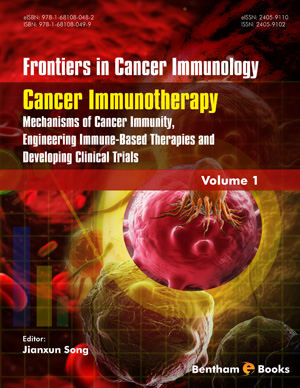Abstract
In cancer patients, a certain number of cytotoxic T lymphocytes (CTLs) specific for cancer antigen are formed; however, most of these CTLs remain inactive due to various suppressive mechanisms such as improper DC activation (anergy induction) or suppression by regulatory T cells. The conventional strategies have been directed to expand the remaining CTLs in vitro or in vivo, to diverge the anergic T cells to an activated status, or to inhibit regulatory T cells. Although the resulting activated CTLs exhibit certain activity in killing tumor cells, in most cases the activity of CTLs is not sufficient enough to result in cure of the patient. One of the major limiting factors in this type of approach is the short life span of activated CTLs. Currently we are trying to overcome this problem by utilizing the iPSC (induced pluripotent stem cell) technology. The concept of our strategy is that it is possible to obtain de novo generated tumor antigen specific CTLs almost unlimitedly when one firstly produces iPSCs from tumor antigen specific CTLs and subsequently regenerate CTLs from such iPSCs. In line with this concept, we have succeeded in establishing iPSCs from mature CTLs specific for the melanoma antigen MART-1, and in regenerating MART-1 specific T cells from such iPSCs. This approach may provide a breakthrough in the future in the tumor immunotherapy.
Keywords: Cloning, cytotoxic T lymphocytes (CTLs), induced pluripotent stem cells (iPSCs), MART-1, melanoma, reprogramming.






















